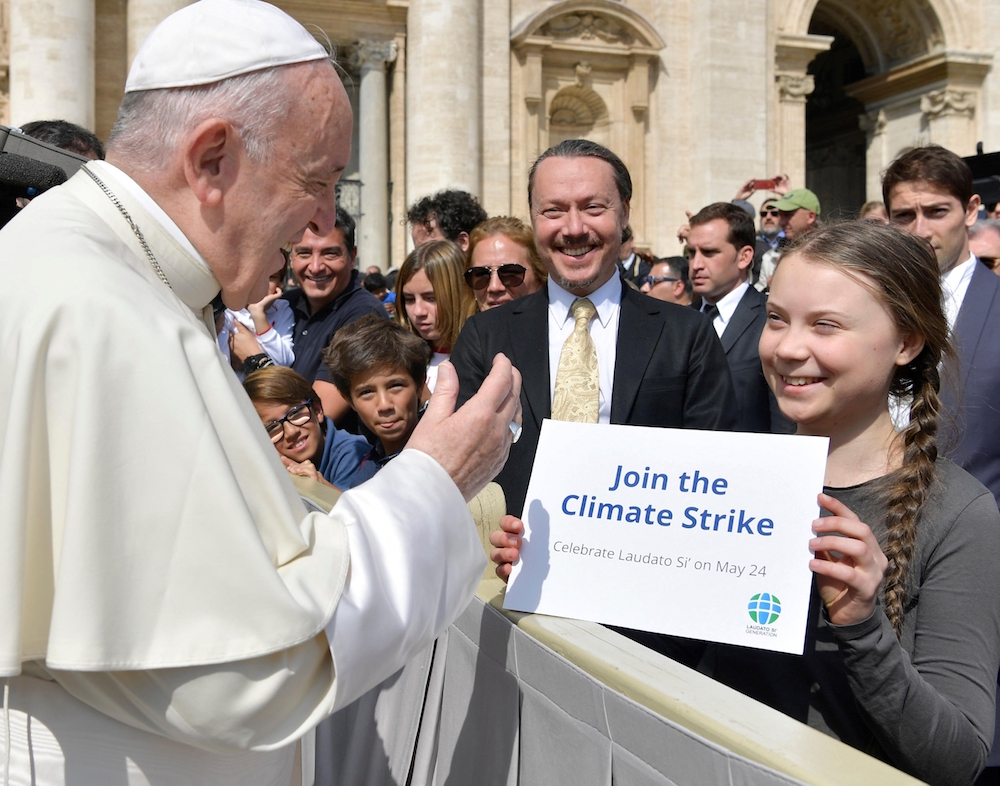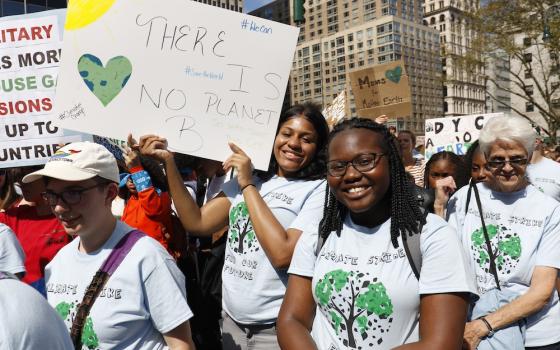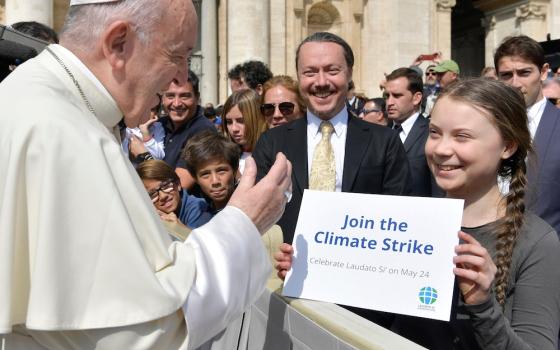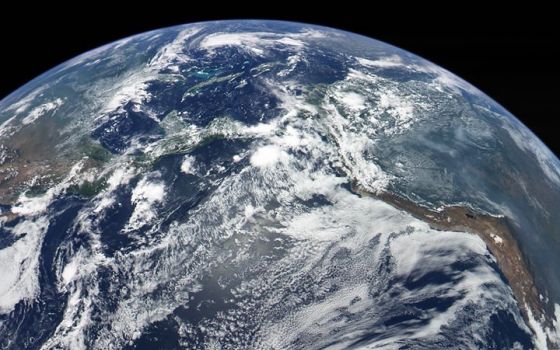
Pope Francis greets Swedish climate activist Greta Thunberg during his general audience in St. Peter's Square at the Vatican April 17, 2019. (CNS photo/Yara Nardi, Reuters)
Editor's note: In his Lenten "Reflections on the Care of Creation," Fr. Emmet Farrell examines our impact on the planet and our responsibility, as people of faith, for our common home. You can sign up here to receive Fr. Farrell's reflections in your inbox every Monday, Wednesday and Friday from Feb. 17 to April 2, and you can view the entire series here.
See:
Young people around the world are struggling to tip the social scale toward swift and concerted climate action. On Sept. 20, 2019, they mobilized for a global climate protest.
Since its debut in 2017, the Ignatian Carbon Challenge has presented thousands of participating students with possible actions they can take throughout the year to bring Pope Francis' encyclical "Laudato Si', on Care for Our Common Home" to life within Catholic schools and, ultimately, in their own daily lives.
The various challenges focus on confronting habits. One challenged students to count how many days they can go without purchasing a single-use plastic item. Another offers steps toward simplifying one's life. And a third focuses on reducing food waste.
When the carbon challenge was launched in September 2017, a key part was encouraging students to read Laudato Si'. One of the organizers told NCR environment correspondent Brian Roewe that the goal "was to create a program that worked, and allows folks to engage in Laudato Si', on both an individual and an institutional level."
"We want it to be part of the fabric of our schools," one teacher told him, while another said, "We would like to see the challenge cultivate collaboration among U.S. Catholic schools in developing agents of social change."
Advertisement
Judge:
The notion of the common good also extends to future generations. … We can no longer speak of sustainable development apart from intergenerational solidarity. (Laudato Si', 159)
Beginning in the middle of the last century and overcoming many difficulties, there has been a growing conviction that our planet is a homeland and that humanity is one people living in a common home. (Laudato Si', 164)
Environmental education should facilitate making the leap towards the transcendent which gives ecological ethics its deepest meaning. It needs educators capable of developing an ethics of ecology, and helping people, through effective pedagogy, to grow in solidarity, responsibility and compassionate care. (Laudato Si', 210)
Today, in a word, 'the issue of environmental degradation challenges us to examine our lifestyle.' (Laudato Si', 206)
Act:
- Find and talk with or invite a group of students to express their concerns and describe what they would like to do.
- Learn about the Sunrise Movement and how young people want fossil fuels out of politics.
- Plan a youth night to listen to young people's concerns about climate change and open a dialogue with them.






